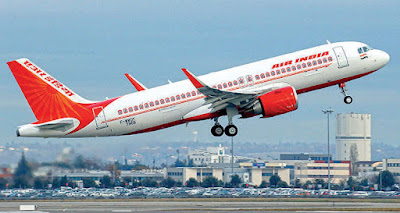* Move to curb carbon footprint, enhance sustainability
Air India, India’s leading airline and a Star Alliance member, has signed an agreement with KSU Aviation to launch TaxiBot operations at Delhi and Bengaluru airports for its Airbus A320 Family of aircraft.
The strategic partnership is aligned with Air India’s commitment to reducing its carbon footprint, as the adoption of TaxiBots envisages a potential saving of ~15,000 tonnes in fuel consumption over three years.
A semi-robotic equipment, the TaxiBot, once attached to the aircraft, acts as an extension of the aircraft’s nose landing gear. It is used to tow aircraft from the airport terminal gate to the taxi-out point and to tow aircraft from the terminal gate after landing (taxi-in phase) without utilising the aircraft’s engines, thus saving jet fuel. The pioneering technology curbs fuel consumption, carbon emissions, noise levels, as well as costs for airlines.
Elaborating on the adoption of TaxiBot, Campbell Wilson, CEO & MD, Air India, said, “As a responsible airline, Air India is constantly looking for ways to improve sustainability and manage our carbon footprint. The deployment of TaxiBots is one more example of our commitment to reduce emissions and fuel consumption. This collaboration with KSU will allow us to better assess the capabilities of TaxiBots, and potentially lead to greater deployment across Air India’s subsidiaries and other airports.”
Air India is investing in efficiency measures to adopt sustainability as part of its regular fleet operations — including inducting new aircraft, better procedures and driving operations with deployment of innovative technology. Last year, the Air India group entered a Memorandum of Understanding with the Council of Scientific and Industrial Research (CSIR) – Indian Institute of Petroleum to collaborate on the research, development, and deployment of sustainable aviation fuels (SAFs).
Dr. Ashwani Khanna, Director, KSU Aviation Pvt. Ltd., said, “We are excited about the formal induction of TaxiBot as part of Air India’s focussed approach to address its carbon footprint. Air India is undergoing a massive transformation and has adopted sustainable practices as an integral part of this journey. We are committed to partner with like-minded organisations like Air India to leverage modern day technology in reducing carbon footprint and accelerate the pursuit of being net zero.”
In October 2019, Air India, in a global first, used a TaxiBot on an Airbus A320 aircraft operating a commercial flight with passengers on board.
About Air India
Founded by the legendary JRD Tata, Air India pioneered India’s aviation sector. Since its first flight on 15 October 1932, Air India has had an extensive domestic network and spread its wings beyond the country to become a major international airline with a network across the USA, Canada, the UK, Europe, Far-East, South-East Asia, Australia, and the Gulf. Air India is a member of Star Alliance, the largest global airline consortium. After 69 years as a Government-owned enterprise, Air India and Air India Express were welcomed back into the Tata Group in January 2022. The present management at Air India is driving the five-year transformation roadmap under the aegis of Vihaan.AI to establish itself as a world-class global airline with an Indian heart.
About the Tata Group
Founded by Jamsetji Tata in 1868, the Tata Group is a global enterprise, headquartered in India, comprising 30 companies across ten verticals. The Group operates in more than 100 countries across six continents, with a mission ‘To improve the quality of life of the communities we serve globally, through long-term stakeholder value creation based on Leadership with Trust’.
Tata Sons is the principal investment holding company and promoter of Tata companies. Sixty-six percent of the equity share capital of Tata Sons is held by philanthropic trusts, which support education, health, livelihood generation as well as art and culture. In 2021-22, the revenue of Tata companies, taken together, was $128 billion (INR 9.6 trillion). These companies collectively employ more than 935,000 people.
Each Tata company or enterprise operates independently under the guidance and supervision of its own Board of Directors. There are 29 publicly-listed Tata enterprises with a combined market capitalisation of $311 billion (INR 23.6 trillion) as on 31 March 2022. The companies include Tata Consultancy Services, Tata Motors, Tata Steel, Tata Chemicals, Tata Consumer Products, Titan, Tata Capital, Tata Power, Indian Hotels, Tata Communications, Tata Digital and Tata Electronics.

No comments:
Post a Comment